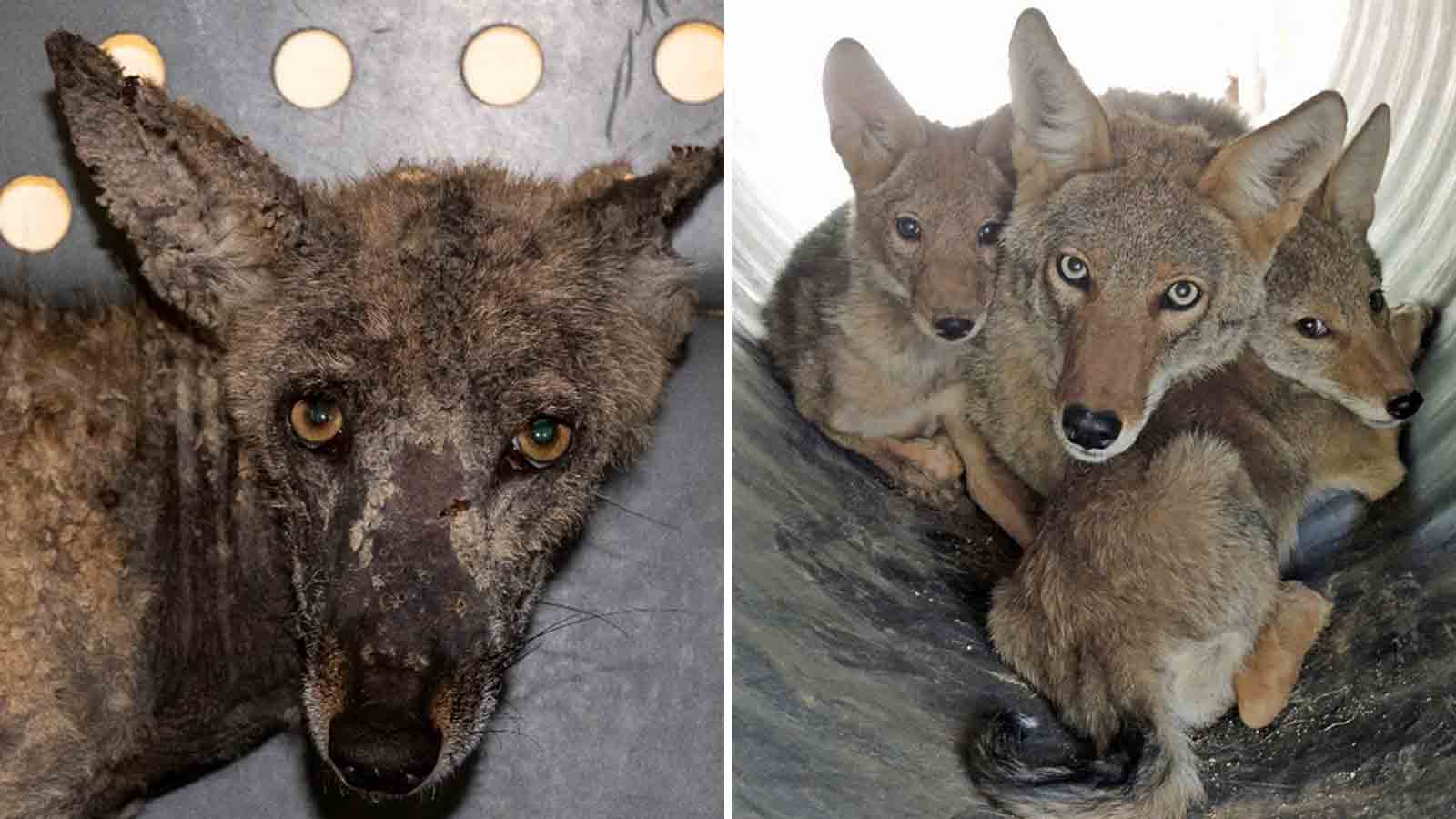
PHOENIX — A wildlife conservation center is urging a reduction of rodenticide use as a concerning trend is on the rise with coyotes in the Valley.
The Southwest Wildlife Conservation Center, a nonprofit sanctuary that rescues and rehabilitates animals, has noticed a rise in fatal or near-fatal illnesses in coyotes, specifically in Sun City, according to a press release.
The center has received numerous calls reporting animals that looked sick, immobile and covered with patches of thick skin and hair loss.
In a recent incident, a postal worker in Sun City discovered a lifeless coyote amidst a pile of its own vomit, feces and fur, the conservation center said. Although it was brought in for treatment, it died shortly after.
Understanding the threat to local wildlife
The center attributes the illnesses to mange, a condition linked to the use of rodenticides. Chemicals in rodenticide weaken the immune system of coyotes, making them more susceptible to parasites that cause mange.
While treatment is possible for some instances of rodenticide-induced mange, not all cases are identified in time for successful intervention. Although, treatable animals are not always releasable as they may become too accustomed to humans or too weak to survive on their own.
Further, rodenticide chemicals can permeate the food chain, affecting various wildlife species.
Southwest Wildlife Center’s urgent call to action
As a result of the concerning trend, the center is asking the public and pest control companies to use less rodenticide and consider other less harmful methods.
“We recommend you start with prevention and that means eliminating any food sources, such as bird seed, pet food or fallen fruit that may attract rats,” Taylor Blackden of Southwest Wildlife said in a press release.
“We also recommend sealing holes in roofs and around pipes or electrical cables to prevent rats from getting into homes, and keeping indoor and outdoor spaces clean in order to effectively diagnose pest concerns quickly.”
If necessary, using rat traps, particularly electrical shock traps, is advised as a more humane option.
Finally, the center pleads to the community to spread awareness about the dangers of rodenticide and to educate communities on other pest control methods.
Those wanting to learn more about the dangers are invited for a tour to meet orphaned mountain lions Felix and Zia, whose mother died from rodenticide.
Proceeds from visits contribute to the rescue, rehabilitation, release and sanctuary efforts for abandoned and injured wildlife in Arizona.
Follow @KTAR923
